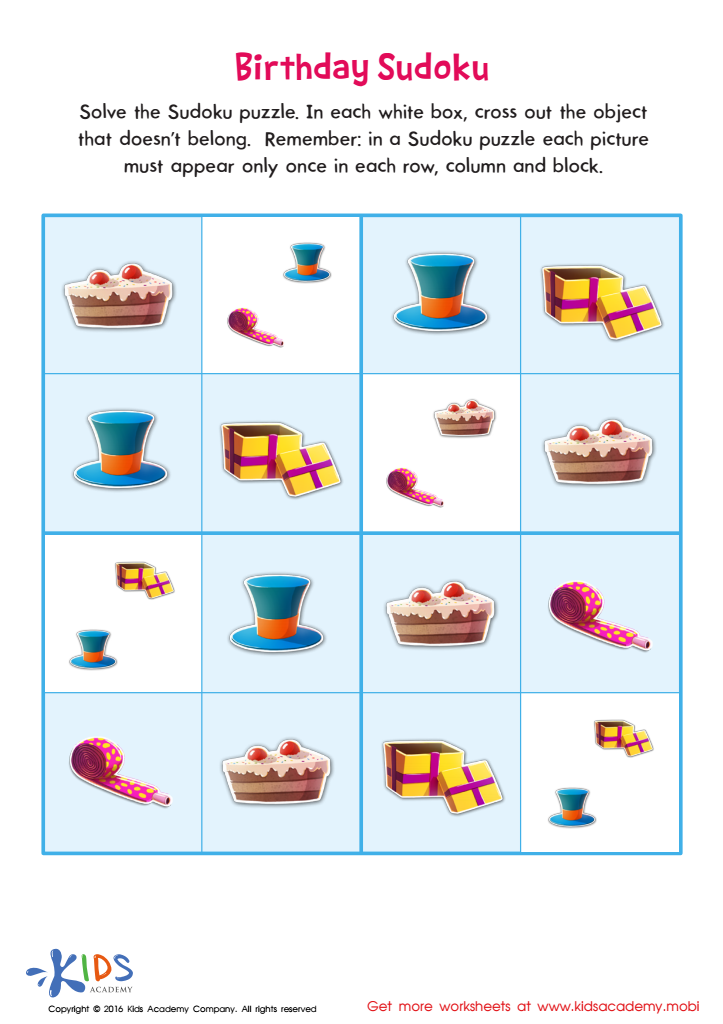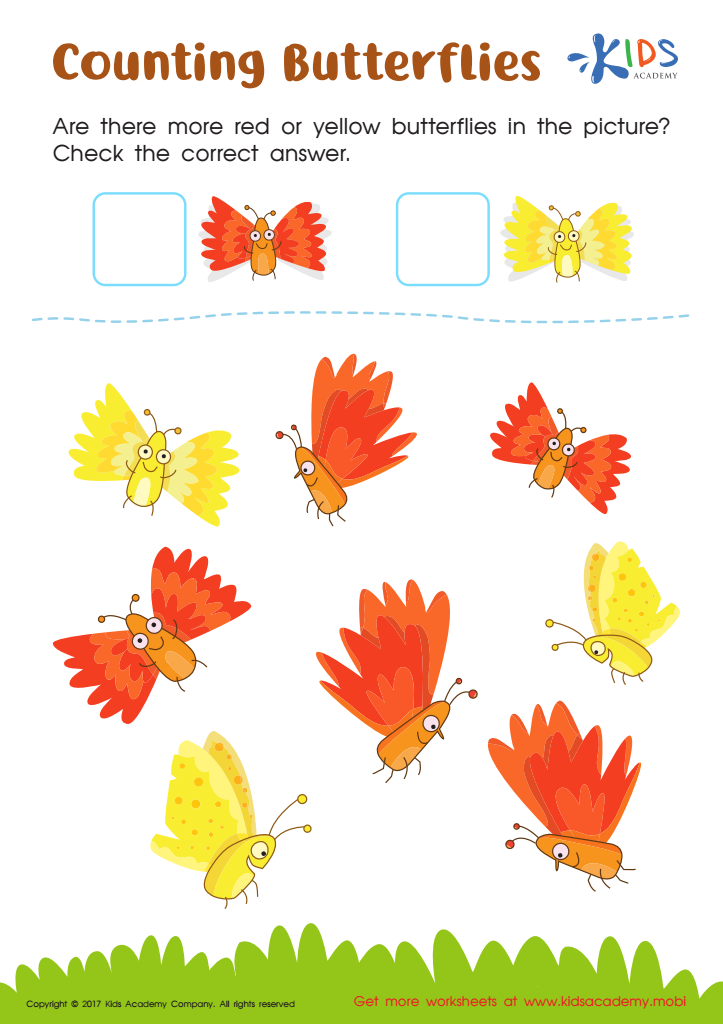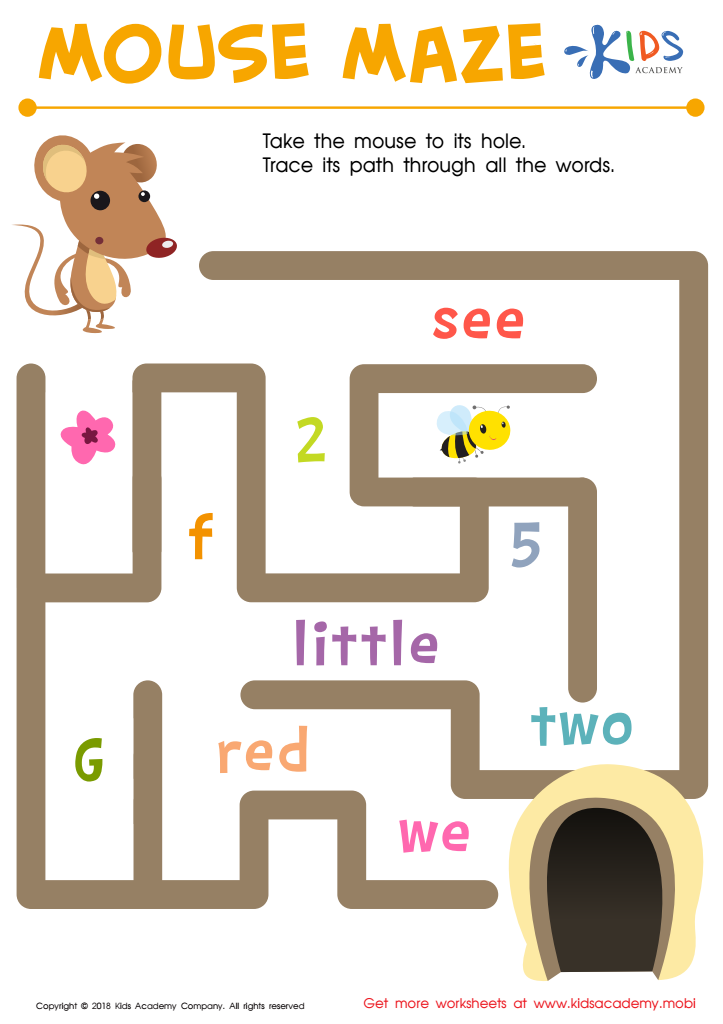Concentration improvement Extra Challenge Worksheets for 3-Year-Olds
3 filtered results
-
From - To
Enhance your 3-year-old's focus and cognitive skills with our Concentration Improvement Extra Challenge Worksheets! Specifically designed for young learners, these engaging worksheets feature fun activities that capture attention, foster memory retention, and strengthen problem-solving abilities. Through a variety of colorful games and exercises, children will develop essential concentration skills in an enjoyable way. Our resources promote independent learning, encouraging kiddos to complete tasks while boosting their self-confidence. Perfect for home or classroom use, these worksheets are a fantastic tool for parents and educators to help little ones thrive. Start your child’s journey to sharper concentration today!


Birthday Sudoku Sorting Worksheet


Counting Butterflies Worksheet


Find Words Mouse Maze Worksheet
Improving concentration in three-year-olds is crucial for their overall development, and parents and teachers should prioritize this skill for several reasons. Firstly, early childhood is a critical period for cognitive development. At this age, children's brains are highly receptive to learning, and enhancing concentration can lead to better problem-solving abilities and creativity in later years.
Secondly, activities that promote concentration can significantly improve children's academic readiness. Focused attention helps them engage with learning materials, listen to instructions, and participate in group activities, setting a solid foundation for future educational success.
Furthermore, cultivating concentration can aid in better emotional regulation. Children who can concentrate can manage their impulses more effectively, leading to improved social interactions and relationships. It can reduce behavioral challenges, as they learn to remain calm and focused during tasks.
Engaging in concentration-improvement activities, such as puzzles, memory games, and arts and crafts, offers fun, interactive ways for children to develop this essential skill. By fostering concentration, parents and teachers not only contribute to their child's cognitive growth but also enhance their social skills, emotional well-being, and lifelong learning capacity. Thus, prioritizing concentration at this early stage benefits both the child and the learning environment.

 Assign to My Students
Assign to My Students
















